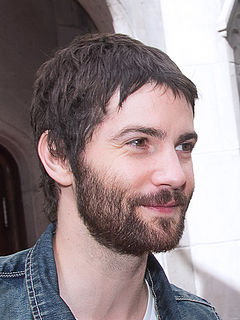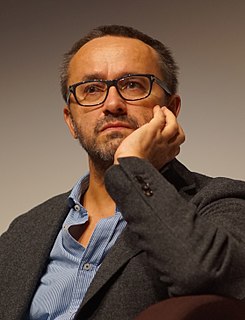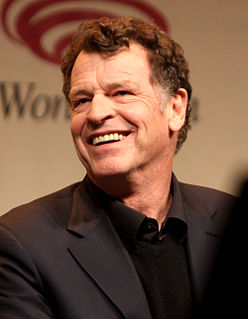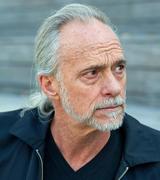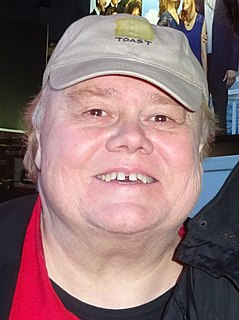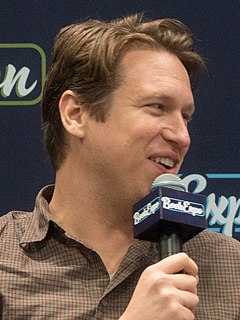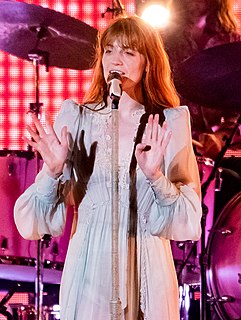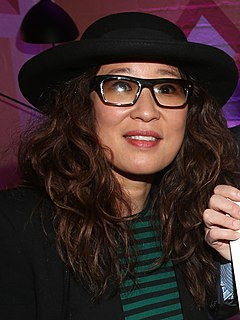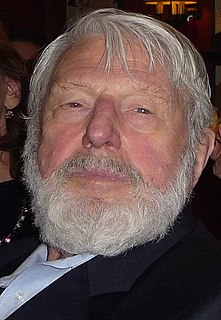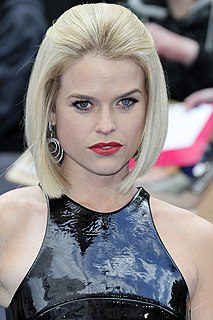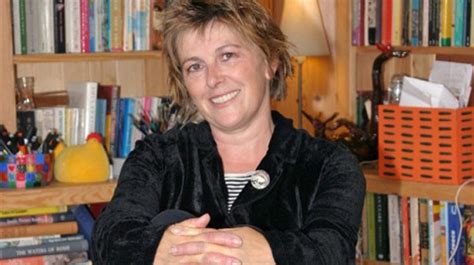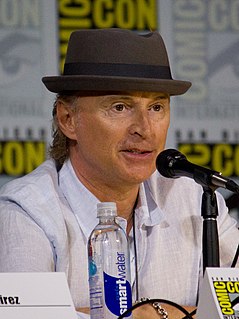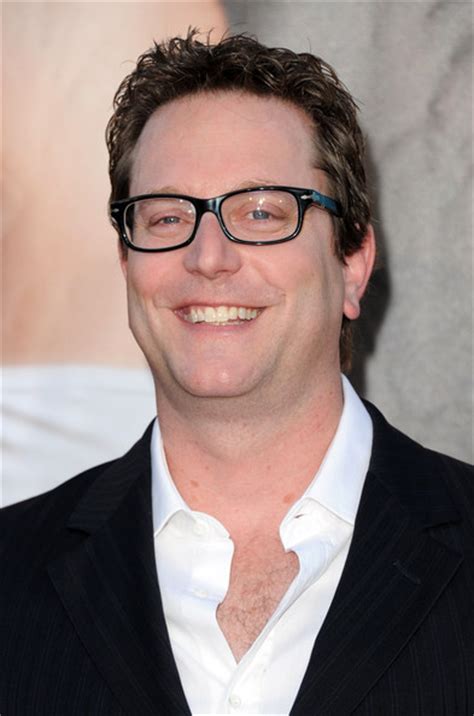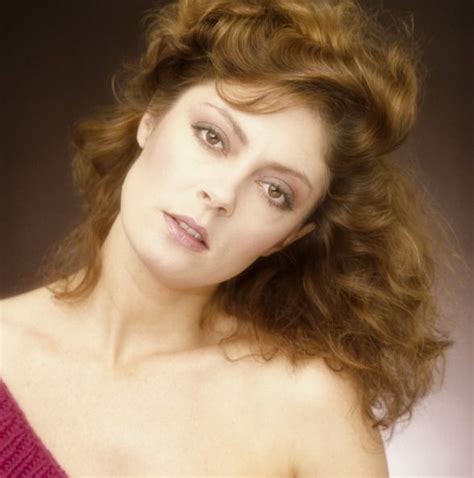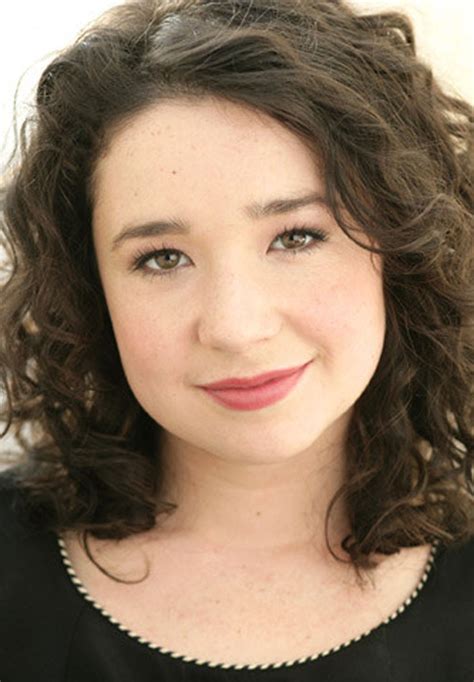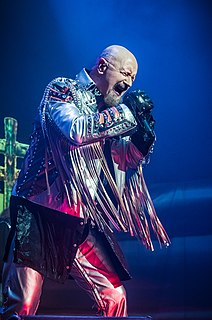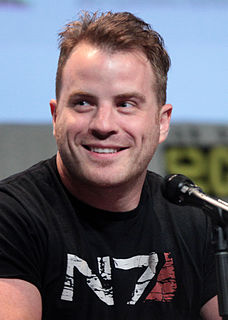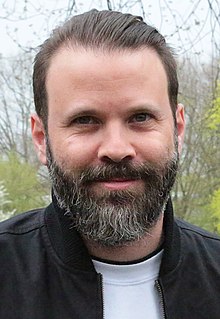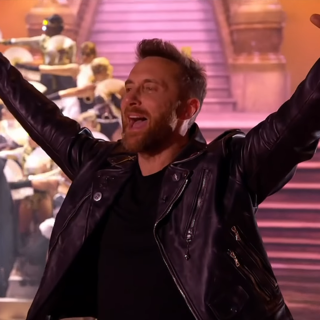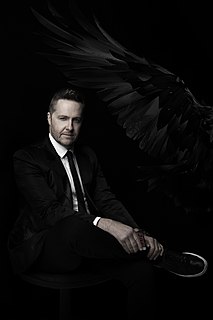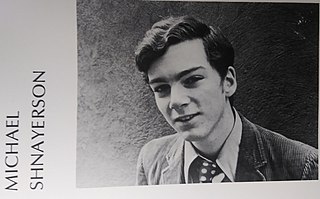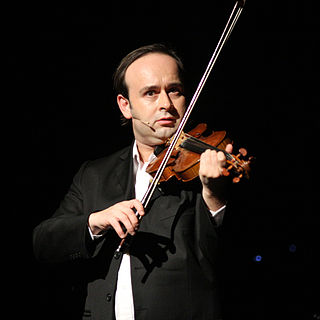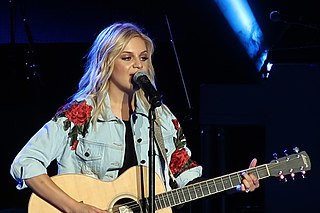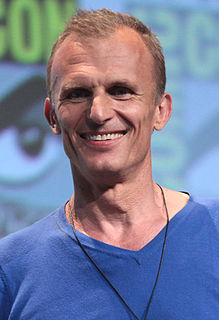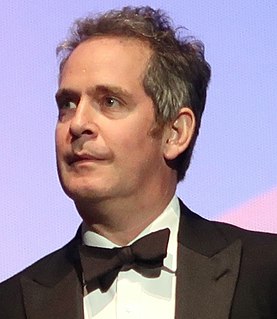Top 1200 Stage Actors Quotes & Sayings - Page 20
Explore popular Stage Actors quotes.
Last updated on November 15, 2024.
British actors come at acting from a slightly different angle. Because a lot of the films are cast out there, they are so used to the angle from which the Americans, and certainly the young guys from LA, are coming at it, that I think it's interesting for them to find these English actors who maybe approach acting from a different place.
Some actors come to casting and ask me, "Didn't you see my previous roles?" We do not work with actors like this. Their previous roles do not matter; I need the actual work with an actor in this particular character that has been written in our script. What matters is flexibility, believability and efficiency of an actor.
As actors, we need public relations to campaign for our next possible role, and any media promoting our work seems positive in nature; but whether in theater or on a film set, a bad unprofessional photograph at the wrong angle may not be as flattering to some actors, and may be considered a harmful exposure.
One time, I came off stage and a guy named Roman Decare, God rest his soul, he was a comic. 'Louie, if you do that family stuff, and you're a clean comic on stage, you'll become famous.' And, for some reason, a switch clicked, and I started doing the family stuff, and it became a giant part of my life.
Accept your loneliness. It is one stage, and only one stage, on a journey that brings you to God. It will not always last. Offer up your loneliness to God, as the little boy offered to Jesus his five loaves and two fishes. God can transform it for the good of others. Above all, do something for somebody else!
Every revolution begins as consciousness because some group of people has to imagine change. You have to have the idea of change or at least have a hope before you can proceed. And that stage goes very quickly because a contagion of consciousness is within your control. But when you get to the stage of institutional change, it becomes a much slower process.
I've found a lot of the thinking in America is that a lot of people become actors to become famous. At least from my experience, I have a dozen or so British friends who are actors, and if you look at their body of work, and they'll go do theatre, and they'll go do this and this. They work, and they're always honing and trying to be better.
Period films to me are very often alienating to the audience. There's very often a formality. A staunchy quality to them that comes from the misenscene. It also comes from the performances of the actors, because they're acting Victorian which really means that they're just acting the way they've seen previous actors act Victorian.
People have a different idea of how movies are made than they really are. On a certain level, everyone throws ideas into the hopper. It's not like the actors are wind-up dolls that you push out onto the floor, play with, then put back in the box. You get people around you who you trust; the writer, the producer, the director and all the actors all contribute.
I always had something to think about or draw from, which as an actor is a gift. The beautiful thing about film is that it gets so much closer than stage. I love stage and that's what I started doing and it's a beautiful art form in of itself, but in film you can move your eyes to the side and somehow the audience can fill in the blanks of what you're thinking.
An actor is supposed to emulate life. Instead, alas, many are imitating other actors. You don't fashion your knowledge of theatre or your approach to a role on the basis of what other actors have done. This kind of thinking is a great danger, especially in dealing with TV producers who frequently say things like, 'This is a Sean Connery type.'
Once you go on stage you're essentially creating the world that people want to participate in. The worst thing you can do is go out on stage with the idea that you're going to communicate something you've learned and if you do it really well, they'll approve. If you go out in an approval process, you will be so nervous and so preoccupied you'll never get to the heart of what it is you want to make music with.
In film, the camera can get an array of shots so the audience can see the emotion the character is giving off. Using close-ups on the character's face really helps get the message across. On stage, you can't do that. But the stage has that live feeling that you can't get anywhere else because the audience is right there.
Between New York and L.A., and all of us who are actors, I feel like we're just one big, cast repertory company, all running back and forth between the coasts and between different shows. There is a wealth of great character actors, who show up, here and there, on different shows. I love the fact that we're allowed to do that.
People who do not have funny in them are not funny when they read funny lines. Sorry. Just doesn't work that way. Seriously, this is the biggest rule of all. You live and die with your casting decisions. Your actors are the heart and soul of the whole thing. Without brilliant actors, you will not have a brilliant film.
I deal with the depraved, the sick, the pathetic, the disturbing and the profoundly depressed. I will try it all on. I will try on what I am and what I never want to be. And everything I wanted to be, but never can be. I can be a supermodel, or your worst nightmare. Off-stage, I just get to leave it, and nobody thinks I'm like that. This is what prevents me from being a psychopath and a sociopath, my time on stage.
What happens in the studio is technically the same thing that happens on the stage. In the past I had to make quite brutal adaptations of the material to make it work on stage. I don't always like doing that because sometimes you're shaving away the things that you actually quite like about them, the spontaneity of it.
Taking drugs on a recreation level is one thing. But taking them while you're working on a stage is, I don't think it was that great. It's the control factor. And the thing about being on stage, you really want to feel that you're sort of in control a lot. It's not a place where you want to be out of control.
With a group of people, a troupe of actors in the theater, you go out on tour, and you're like a traveling circus. It's very sociable, and there's a real community, and it's very intense, and then you may never see them again. That was very appealing. I mean, it wasn't consciously appealing, but I think a lot of actors like that.
Your actors need to trust you as a director, but normally, I think you just need to have an open communication between the actors and the director. I think the director needs to really paint his or her vision to the cast and let them know the kind of mood that he or she is making. I think that's very important.
The headmistress was a very well-respected theater teacher. She taught me what stage left and stage right were, what a director was, and what all these things meant, which was something I had no concept of. She sent me off to drama school, at age 18, and I stayed there for three years. Before I knew it, I was working on a TV show.
We live in a world of absolute immediacy. It is an interconnected, combustible world, where technology and many other actions have given nonstate actors a reach, into countries and societies, for both good and evil, that we have never seen before. So it isn't a matter of just state versus state challenges or conflict. The bigger problem is nonstate actors.
Acting is a difficult profession, it really is. It's different than singing. With singing you may have one song and four people to record it - but they'll all do it differently and they'll all have that option. Whereas with actors there might be one part, and five hundred actors all want the same role - it's so much more competitive. It's an incredibly painful profession because you get so much rejection.
This work should commence with the conception of man, and should describe the nature of the womb, and how the child inhabits it, and in what stage it dwells there, and the manner of its quickening and feeding, and its growth, and what interval there is between one stage of growth and another, and what thing drives it forth from the body of the mother, and for what reason it sometimes emerges from the belly of its mother before the due time.
Film just chews up actors like nobody's business, and I'm not particularly interested in being chewed up. I think the camera can only look at somebody's face for so long. I guess you have to accept the roles you think are right at the time. You can build a career, but these days there doesn't seem to be that much interest in people being actors.
English actors feel vaguely apologetic for being there at all. American actors know that the most important thing is to get one take out of fifty that is great, and they'll go to any length to get it. The English are used to working within consistently small, low-budget things and think, I mustn't waste their time.
I started in '88 to play House music, it was a huge revolution for me. I went to London and I saw a DJ on stage and that was crazy at the time. I was one of the really respected and famous DJs in Paris, but they would never show me. I was hidden. A DJ on stage and people dancing and facing the DJ, looking at him? I was like 'wow!'
In 2006, when doing a live stage show in Ireland, I tried for the first time to instantly induct a subject on stage, something I had never done before, nor did I know if it would ever work. The result almost cost me my career; the man I grabbed and instantly inducted went out cold and fell to the floor.
We've always dreamt of a TV series and working in film. When we first sat down to seriously write 'A Little Nightmare Music,' to write something for TV was our original inspiration. But all the stuff we were writing down is not going to work on stage. We had to rewrite it so it would work on the stage.
I'm a Gemini, so there's two people in me. Straight up. There's the nerd who is totally zoned out in the studio, EQ-ing this kick drum, raising this snare one decibel, or swapping this high hat out for another. Then there's the other side who's a performer. I have to go out on stage and be electric, a fire cracker, just run around the stage and give a show.
I was very familiar with both actors, as well as Christina Hendricks and Bill Sage, Jimmi Simpson, Polly McIntosh, but the other main actors were new to me. And they were all terrific. Just amazing. Actually, Lowell Northrop optioned Savage Season from me, first book in the series, and I wrote a screenplay.
When a theater goes dark for the night, a stagehand leaves a lighted lamp on stage. No one knows why any more, but some old timers say it is to keep the ghosts away. Others say it lights the stage for the ghosts to play. Whichever theory one adheres to, most people agree: a great theater is haunted.
I love my situation as a spectator. The actors are only a little bit ahead of the audience. The audience discovers the episode when it's screened, but we actors only discover the episode when we get the script, two weeks ahead of shooting. Until then, we know nothing of the evolution of our characters.
I love a certain kind of acting style that I would call non-American, which tends to be more detail-oriented and less externalized. There's a kind of naturalism that I often find in non-American actors. I also find that quality in the American actors I work with, but I like to bring in those influences creatively.
In film, the camera can get an array of shots so the audience can see the emotion the character is giving off. Using close-ups on the characters face really helps get the message across. On stage, you cant do that. But the stage has that live feeling that you cant get anywhere else because the audience is right there.


